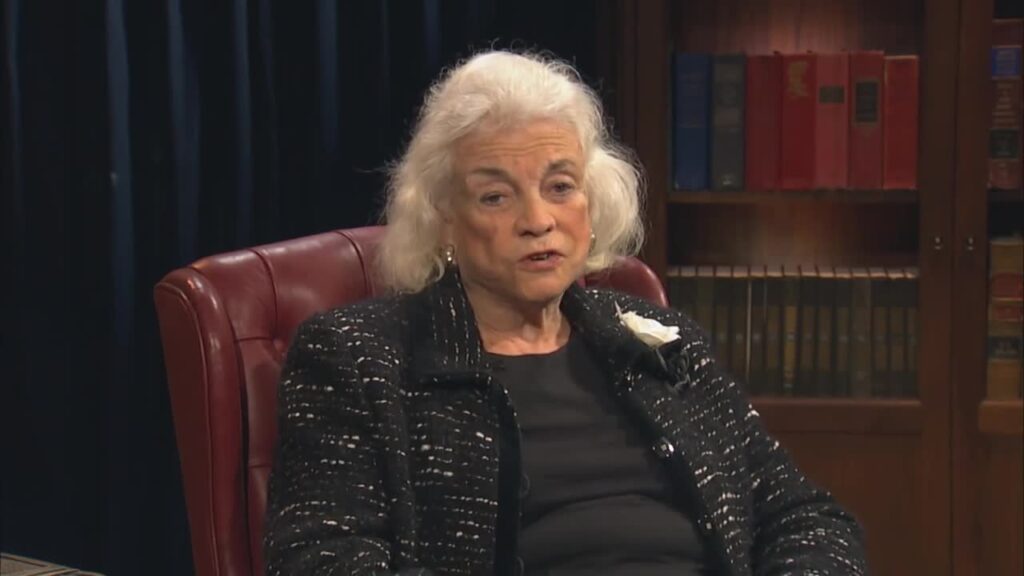Sandra Day O'Connor
Good evening. And I'm sorry, I wasn't able to join you in person for this exciting event. Although I can't say I'm sorry to be spending this winter evening, in a warmer climate. I dedicate much my time working to teach our school children about the importance of civic knowledge, including the importance of our nation's charter our Constitution. A few years ago, I was speaking to a large group of young people. My purse was sitting next to my chair. I'm told it was even trending on Twitter for a time, one of the students asked me what I kept in that purse. I told her that of course, I keep the usual sorts of things there, a wallet, Kleenex tissues, a compact. I also told her that one thing I never forget to include is a copy of the Constitution. And just like I never forget my copy of the Constitution, I also never forget that we need to care and learn about the whole Constitution, not just the original articles drafted in Philadelphia, and the Bill of Rights ratified soon after, but also the later amendments, including the vital amendments that we're celebrating here tonight, amendments that ended slavery, that secured equality for every one of us, and expanded the right to vote.
This is an important lesson to keep in mind tonight, as we celebrate Celebrate President Lincoln's constitutional legacy, and in particular, his role in the ratification of the 13th amendment to our Constitution, as well as over the next five years, as we celebrate the 150th anniversary of the key amendments that President Lincoln and his generation fought to secure for us: the 13th, 14th and 15th amendments.
Tonight, we celebrate President Lincoln and his important role in the passage of the 13th Amendment, which ended slavery. He secured congressional approval of the amendment on January 31, 1865. He took the unusual step of signing it the very next day, calling it "a king's cure for the evil of slavery." Neither the 13th amendment, nor the 14th and 15th amendments get the kind of attention they deserve. But they contain some of the most important and inspiring passages in our Constitution. They gave the nation what President Lincoln promised in Gettysburg: "A new birth of freedom." It's little wonder that scholars often refer to them as "our nation's second founding." They deserve a place at the center of the American constitutional story.
Over the next five years, I'll be working with the National Constitution Center and Constitutional Accountability Center to organize a celebration of this second founding. And this larger celebration will continue through February 2020, the anniversary of the ratification of the 15th amendment. Indeed, I'm delighted to serve as its honorary chair. Now, thank you so much for being here tonight. Even though I couldn't join you in person, I hope you will join me over the next five years in helping to build a celebration that's worthy of the constitutional achievements of President Lincoln and his generation. Thank you.

